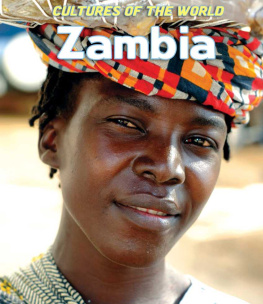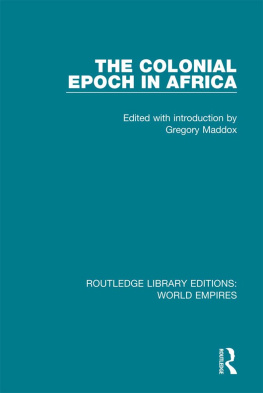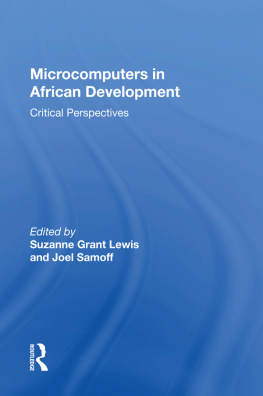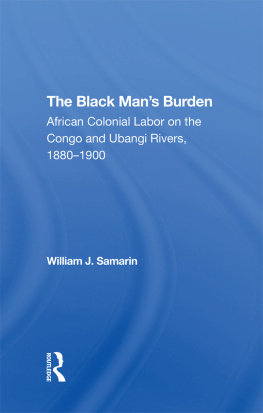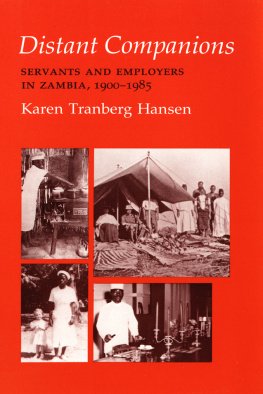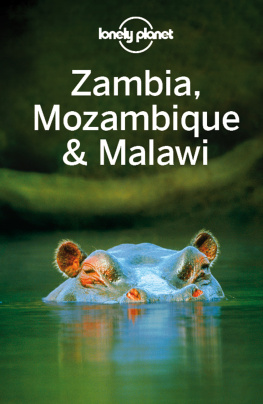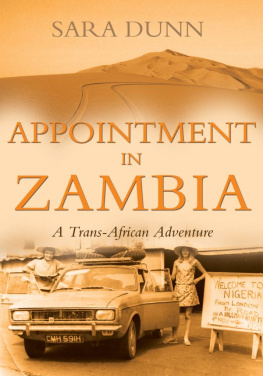
ZAMBIA, THEN AND NOW
The author, William Grant, studied History at Edinburgh University, Scotland, and was, from 1958 to 1961, one of the last generation of British Colonial Service Officers in what was then Northern Rhodesia. After leaving the Colonial Service, he has taught History, Economics and Politics in Scotland, Canada, China, and Switzerland. He now lives in Ottawa with his wife, Jinny Slyfield, who accompanied him on the 2006 return journey.
In all the years between, he never managed to erase Northern Rhodesia/ Zambia from his mind, and always yearned to return. He did so, finally, in 2006, 48 years after his first arrival there. In this book, he seeks to compare the colonial society with that of the independent African country and to make a personal assessment of both. The occasion is timely. Britain ruled Northern Rhodesia for 40 years, 1924 to 1964, and Zambia has been selfgoverning for 42 years, so both have had almost equal time to make their mark.
The author seeks to place both the colonial rulers and their African successors in the context of history and of the circumstances of their time, viewing their achievements and failures critically, but not unsympathetically. In particular, he tries to bring discussion of colonialism from a level of abstraction, to view it at the day to day level of the administration of a rural district of some 20,000 square kilometers by four Officers and a handful of African District Messengers, without even a telephone to assist them.
ZAMBIA, THEN AND NOW
COLONIAL RULERS AND THEIR AFRICAN SUCCESSORS
WILLIAM D. GRANT

LONDON AND NEW YORK
First published 2009
by Routledge
2 Park Square, Milton Park, Abingdon, Oxon, OX14 4RN
Simultaneously published in the USA and Canada
by Routledge
270 Madison Avenue, New York, NY 10016
Routledge is an imprint of the Taylor & Francis Group, an informa business
This edition published in the Taylor & Francis e-Library, 2008.
To purchase your own copy of this or any of Taylor & Francis or Routledges collection of thousands of eBooks please go to www.eBookstore.tandf.co.uk.
2009 Routledge
Cover illustration by Jinny Slyfield
Jacket and text design by Alexis Orenstein
All rights reserved. No part of this book may be reprinted or reproduced or utilised in any form or by any electronic, mechanical, or other means, now known or hereafter invented, including photocopying and recording, or in any information storage or retrieval system, without permission in writing from the publishers.
British Library Cataloguing in Publication Data
A catalogue record for this book is available from the British Library
Library of Congress Cataloging in Publication Data
A catalog record for this book has been requested
ISBN13: 978-1-135-78443-0 ePub ISBN
ISBN10: 0-7103-1343-8 (hbk)
ISBN10: 0-203-88390-X (ebk)
ISBN13: 978-0-7103-1343-0 (hbk)
ISBN13: 978-0-203-88390-7 (ebk)
CONTENTS
This book is dedicated to the Administrative Officers of the Northern Rhodesia Service, and to the people of Zambia.
ACKNOWLEDGEMENTS
Writers habitually thank their wives, without whose help their books could not have been written. In my case, it is literally true. I appreciate, not only Jinnys forbearance at my preoccupation with the writing, but, also her active assistance with advice and ideas, as well as undertaking typing of emails. Her artistic eye is present in the photographs of our 2006 trip to Zambia, to the success of which, her rapport with Zambians also contributed enormously.
Our friend, Jane McDowell, cast a critical teachers eye over slips of grammar, spelling, literacy and sense, as well as asking interesting and constructive questions. I have to thank Nevin Orange of Care, Canada and Jamie Hillman for preparatory background information on Zambia.
Of the many Zambians who contributed to my knowledge of their country, I must particularly mention our driver, Boniface Nawa, who was an informed and valued guide. Likewise, I wish to thank the staff of Wilderness Tours in the Kafue National Park, whose game guides, especially, are marvelous. I should particularly thank Victoria and Gogo, Training Managers with Wilderness, who gave us insights into the social and political life of the country. This is also true of Peter and Lynn Fisher at their beautiful game reserve, Nchila, in Mwinilunga, with whose help, Jinny and I were able to attend the installation of Chief Ikelenge and to have the privilege of meeting Senior Chief Kanongesha.
I am highly indebted to a number of authors and their publishers for kind permission to allow me to use material from their works. Foremost among these is Dr. Edith Turner, who, with her husband, Victor, lived in a Lunda village, for permission to republish an account of an ihamba ceremony, which gives greater balance to my comments on witchcraft. The statistical summary in , depends almost exclusively, upon facts from The Economist, Pocket World in Figures, 2005, published by Profile Books. The quotations from a history of Central Africa by A.J.Wills on pages 7 8 and 134, appear by permission of the Oxford University Press, while extracts from A.N.Wilsons The Victorians, are reprinted by permission of the Random House Group. All of these publications are fully acknowledged in the Bibliography.
PREFACE
Zambia is the forgotten country of Africa. Celebrities dont go there, nor, it seems, do foreign journalists or world leaders. This is a pity, because Zambia is both a beautiful and an interesting country. Britain was in full control of it from 1924 to 1964 and it has been independent from 1964 until now. Both the British and the Zambians have had almost equal periods of rule, so that an assessment at this time is very appropriate. Zambia has considerable resources and has not been egregiously badly governed, as other countries have been, nor has it experienced internal strife or civil war. Yet it remains one of the poorest countries in the world, 166th out of 177 countries in a recent UN human development index.
How this came about is interesting in itself and instructive for Africa as a whole. Zambia is now one of the more democratic countries on the African continent, having twice changed government in democratic elections, first in 1991 and again ten years later in 2001. It also possesses one robustly independent newspaper, harbinger of a free press. So Zambia may be poor, with many problems, but it has demonstrated to the world that Africans can live, as they have a right to do, in reasonable peace and freedom, without authoritarian dictatorship. That surely deserves to be acknowledged.
Neither its problems nor its achievements since Independence are truly attributable to the British colonial legacy, but, since colonial administrators are so often blamed for what has gone wrong, they may be forgiven for accepting some gratuitous credit for any success. They did lay some of the groundwork, but it was for Zambians to decide what to do with it.
Although a former colonial officer, I am less than an apologist for the system within which I worked, conceding that, in principle, one people should not govern another, that colonialism is in principle wrong, and that it was inevitable and right that it should end. In practice, nevertheless, cultures and societies may sometimes benefit from involuntary inclusion in the empire of another, as the ancient Britons did from being part of the Roman Empire. It may well be that colonial rule was not the worst thing that could have happened to Africa at the end of the nineteenth century, and of the competing forms of that type of governance, the British one was probably not the worst. There are times, too, when government by ones own people may be more oppressive than governance by foreigners, or may prove incapable of moving the society forward.





